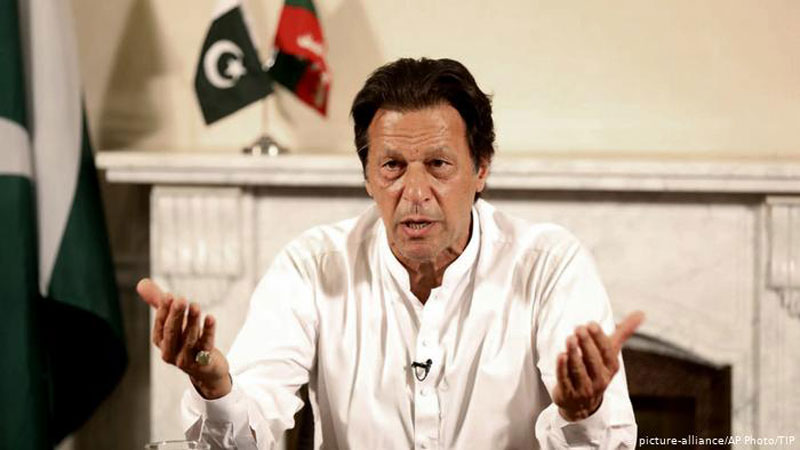Relief packages for businesses, industry to help economy rebound


At the very outset of the outbreak in Pakistan, Prime Minister Imran Khan announced a record Rs 1.2 trillion inclusive relief package to offset the slowdown inflicted by the pandemic. Under the package, petrol and diesel prices were immediately slashed by Rs 15 per litre, while an amount of Rs 200 billion was allocated for relief to labour class, Rs 100 billion for tax refunds to traders, Rs 100 billion for Small and Medium Enterprises, Rs 50 billion for provision of edibles at Utility Stores at concessional rates, Rs 280 billion for wheat procurement, Rs 100 billion for emergency situation, Rs 50 billion for medical staff and Rs 25 billion for the National Disaster Management Authority for medical supplies.
Under the ‘Ehsaas Emergency Cash Program’ a huge amount of Rs 144 billion is being distributed among 12 million families and each deserving family is being paid an amount of Rs 12,000. And at the same time, under ‘Chota Karobar Imdadi Package’, the federal government announced to support small businessmen by paying their electricity bills for the months of May, June and July at a cost of Rs 75 billion. Under the package, at least 3.5 million small businesses will get much-needed relief as the initiative will help reduce burden on 95 per cent of commercial connections and 80 per cent of industrial connections. The government has also approved a credit loss subsidy of Rs 30 billion for Risk Sharing Facility for State Bank of Pakistan’s (SBP) Refinance Scheme to support employment and prevent lay-off of industrial workers.
The whole business community, which had been patiently bearing losses in the time of this pandemic, has welcomed these relief packages, terming those a very positive step by the government that will provide crucial relief to small businesses in these difficult times by helping them revive business activities. They have also welcomed the government’s step of bringing down the key policy rate, which will help cut down cost of doing business, accelerate pace of trade and industrial activities and reduce inflation, thus providing great relief to the common man as well.
As the federal government has gone out of the way to help the pandemic-stricken people and businessmen, Sindh rulers looks to be least bothered in addressing the concerns of the traders and small-scale businesses while their own oligarchs feed off from profits in wheat cultivation. While after devolution of powers under the 18th Amendment, the provincial chief minister is constitutionally empowered to take all administrative decisions, at the same time he is also responsible to save the vulnerable segments of society from unemployment, hunger and starvation and industry and businesses from losses and closure. Things would have definitely been different had the chief minister had given more time to looking at the poverty and hunger at the ground instead of political point scoring and focusing on building image in media.
The Sindh government has, apparently, miserably failed in providing quick and adequate relief to the people and the industry and implementing even a single strategy in this crisis situation. What is more worrisome is that the government is still unable to fully estimate the extent of the damage or coordinate relief efforts. Not only, different organs of the provincial government have been issuing conflicting reports on the coronavirus situation in the province, the ruling regime has also been at times accused of hiding facts from the public. A serious lack of planning and political will from the government only intensified the crisis in the province. As the country races against time in its fight against coronavirus, it is time to get united and exert all our energies to reduce the sufferings of the affected people and the business. Political point scoring won’t be of any help on the ground.
Recent Posts
- Pakistan
IHC issues show-cause notices to immigration DG, NAB director in contempt case
The Islamabad High Court (IHC) has issued show-cause notices to the Director General of Immigration…
- Business
Dollar steady as markets await key U.S. jobs and economic data
The U.S. dollar held firm on Monday as traders paused ahead of crucial economic data…
- Business
IBM to invest $150 billion in U.S. to boost quantum computing
IBM has announced a $150 billion investment in the United States over the next five…
- Pakistan
Khawaja Asif vows strong response to any Indian aggression
Defence Minister Khawaja Asif warned that Pakistan will give a decisive response if India attempts…
- Pakistan
40 injured in oil truck explosion at Nushki terminal
At least 40 people were injured when an oil-filled truck exploded near the truck terminal…
- Op-Ed
Power: Tangible and Intangible Forces
The highest quality of the power comes from the application of the knowledge. In international…
Leave a Comment